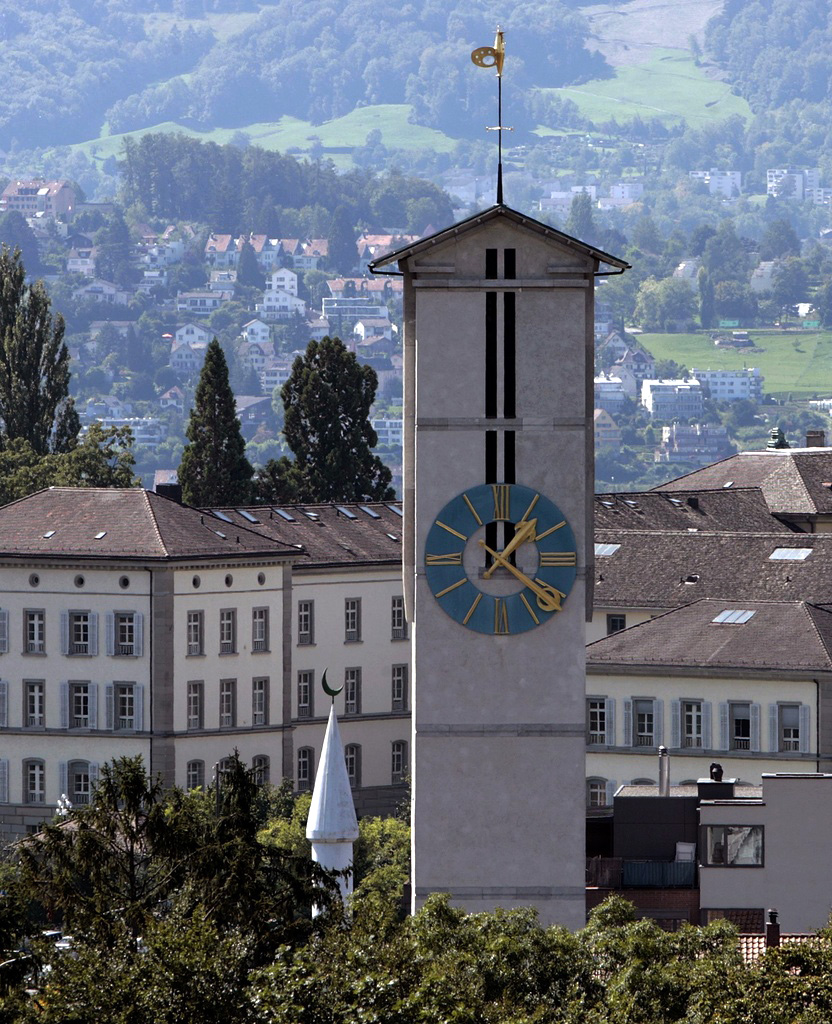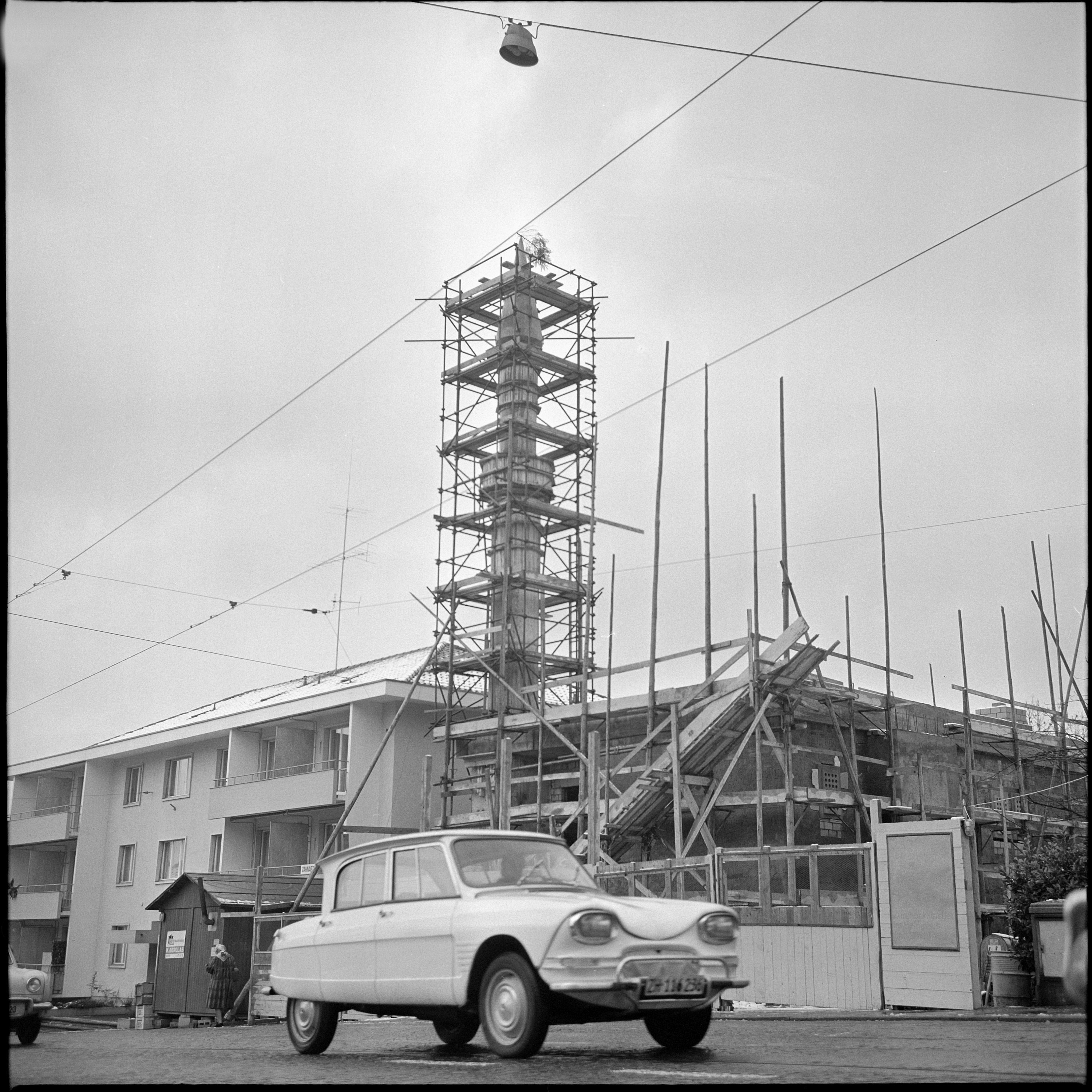Muslim headscarf remains a headache for sport

A year after putting her competitive basketball career on hold over a headscarf ban, a Muslim player is considering taking her case to Switzerland’s top court.
Sura Al-Shawk, a Swiss citizen of Iraqi origin, appealed her regional league’s ban in September 2009 and her case has rumbled on ever since. It is still nowhere near to being resolved, according to her lawyer Daniel Vischer.
The 20-year-old player for national B-league STV Luzern has been unable to take part in games since being told by ProBasket, the northeastern regional basketball association, that she had to remove her headscarf or stop competing.
ProBasket said the sport had to be religiously neutral and wearing a headscarf during play could increase the risk of injury. The association said it was just following International Basketball Federation (Fiba) rules, whereby religious symbols are banned during official games.
Al-Shawk took the case to a Lucerne local court in January – and lost. The court said in a ruling that the ban didn’t breach her rights as a player.
Her lawyer is considering taking an appeal to the Federal Court in order to establish whether “her individual rights have been infringed”.
But before that can happen, all ProBasket’s necessary internal legal procedures have to be followed.
“Hot potato”
Earlier this month, Vischer filed a new appeal with ProBasket to allow Al-Shawk to play with her headscarf.
It follows months of the issue going back and forth between ProBasket and Swiss Basketball, the national basketball federation, “like a hot potato”, says Vischer.
It started when Vischer’s appeal with ProBasket last September was rejected. He then filed a motion to dismiss the proceedings for procedural reasons but it was turned down. After the case went to the Lucerne court, it was referred to the national federation, who in turn said it was a regional matter and it landed back in ProBasket’s lap.
“We’re back at the beginning,” said Vischer, noting that the next step will be to appeal through ProBasket’s appeal committee, and failing that, the Federal Tribunal.
“I can’t go to a state court until all the available avenues have been explored through the basketball association’s legal instances. I want to take it to court because I don’t have any hope that the basketball association will say yes.”
Taking responsibility
ProBasket appears to have finally had enough of the case and wrote on October 12 to the Swiss basketball federation president, Stefan Schibler.
swissinfo.ch obtained a copy of the letter, headed “Sura Al-Shawk – cooperation and support”, in which ProBasket complains of having to “deal with the headscarf issue for almost 18 months now and it seems there is no end in sight”.
ProBasket goes on to say that the Swiss basketball federation is responsible for enforcing Fiba rules among national and regional teams, in collaboration with the national and regional leagues. “Swiss Basketball can’t pass responsibility onto its members, who are in fact then left to face the music.”
It asks Swiss Basketball to take over full responsibility for the case with immediate effect until a mutual solution is found.
Individual right
The Swiss national league told swissinfo.ch on Thursday that it still was not up to them to take a position on this question as it involved a player in a regional league.
Swiss Basketball director François Stempfel was reported in the Bund newspaper as saying: “Since October 2009, we have pointed out to Mr Vischer more than once that this is a matter that should be dealt with by ProBasket.” He also noted that the case had gone through a civil court and been rejected.
Fiba has already said that making an exception would open the floodgates to other requests. But Vischer is unmoved.
“I say the right to play with a veil is an individual right of Ms Al-Shawk,” Vischer told swissinfo.ch.
“This is very tiring for her. She feels really, really terrible. She wants to play but she can’t. But she hasn’t lost hope.”
The Muslim community in Switzerland accounts for about 4.5% of the population.
Most Muslim immigrants came from the former Yugoslavia and Turkey. The community includes up to 100 nationalities.
The number of Muslims doubled between the censuses of 1990 and 2000, largely boosted by an influx of refugees and asylum seekers, including from the war in the former Yugoslavia.
There are about 200 mosques and prayer houses in Switzerland, but only four have a minaret.
On November 29, 57 per cent of voters supported a people’s initiative to ban the construction of new minarets in Switzerland.
This was in the wake of heated debates and legal battles at a local level about requests by mosques to build more minarets.
The proposal on banning minaret construction was championed by rightwing and ultra-conservative groups. The government and most political parties as well as churches and the business community came out strongly against it.
In recent years, both mosque and minaret construction projects in many European countries, including Sweden, France, Italy, Austria, Greece, Germany and Slovenia have generated protests, some of them violent.

In compliance with the JTI standards
More: SWI swissinfo.ch certified by the Journalism Trust Initiative













You can find an overview of ongoing debates with our journalists here . Please join us!
If you want to start a conversation about a topic raised in this article or want to report factual errors, email us at english@swissinfo.ch.